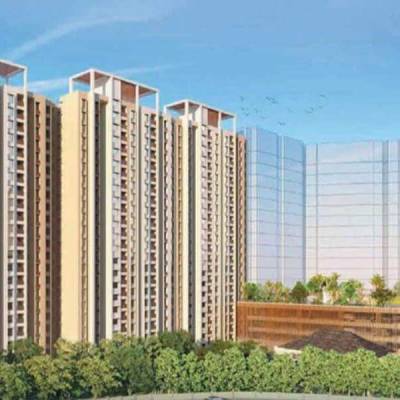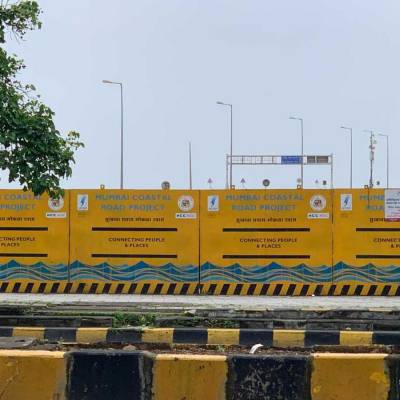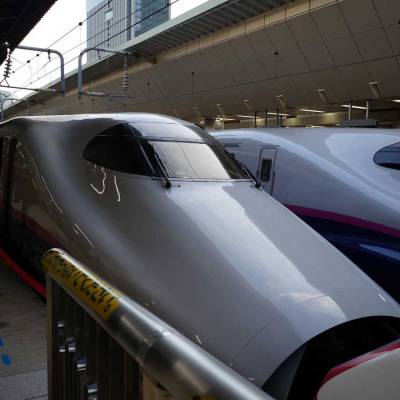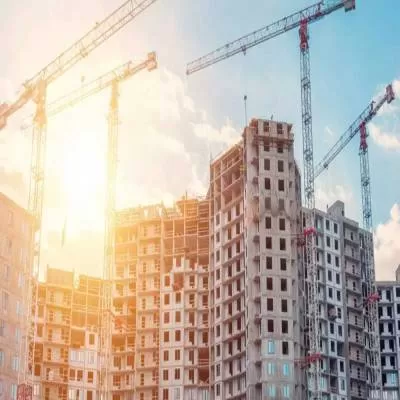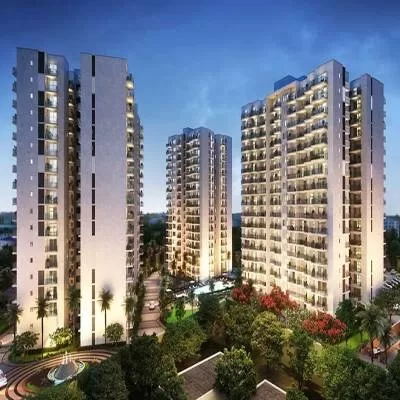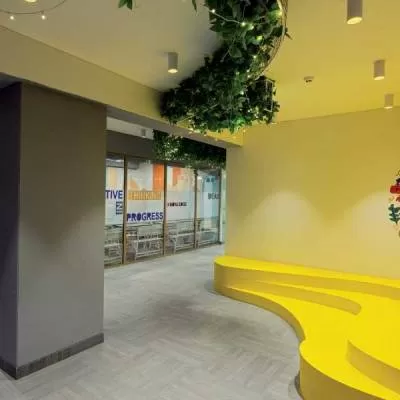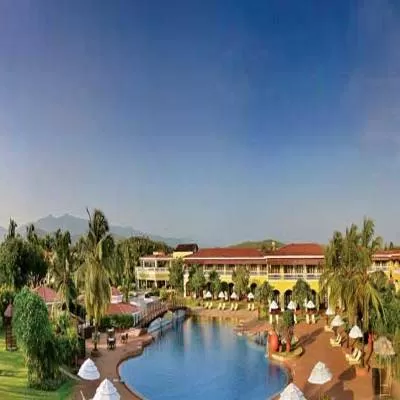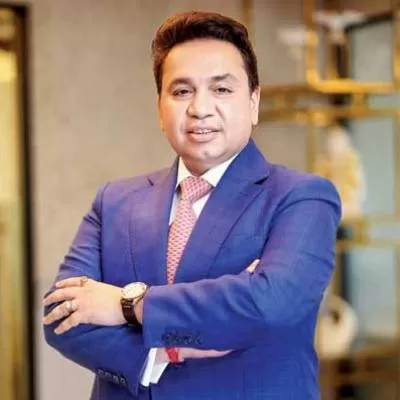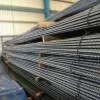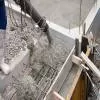- Home
- Real Estate
- We will develop our strengths in metros

We will develop our strengths in metros
How does the group company, Steiner AG, lend its expertise to the affiliate in India?
Ducrey: Steiner AG´s core expertise is project management. In Europe, we are the best-in-class in this area-to deliver the highest quality to clients within pre-defined timelines and cost. Additionally, we ensure conformity to all guidelines relevant to safety at work and environmental protection in our projects. We realised that this is what the Indian market needs most ´ the best project management skills´ and this is what we lend to our counterpart.
Is it challenging to work in India, where every city has its own set of development plans and rules?
Ducrey: Absolutely, I quite agree. But I said before, we are hard to beat in the field of our core competence, which is project management. The more chaos you have around you, the more essential it is to plan and manage the present day knowing what you want to achieve tomorrow.
Arun : challenges differ from city to city and sometimes within the city for example, working in a suburb and south Mumbai have different execution challenges. To counter the same we have best of operational excellence and project management practices
Please share some of your building design concepts along with their benefits.
Ducrey: Very few developers in India involve the contractor in the area of building design concepts. However, this trend has been adopted in the recent past, especially because multinationals and international developers are coming in. And as such practices are being incorporated in their country, they demand these services from contractors with the expertise in India. And here we come into the picture. So we lead the team of Lavasa for the entire design build. We got a team of experts, appointed different architects and specialised consultants and gave our thoughts and concepts on where we needed a hotel, hospital, residential set-up or villa. Based on a final plan, we worked towards delivery.
However, what we have done in Europe cannot exactly be brought to India. Here, every state and every city has a different climate and different requirements in orientation and functional aspects and so forth. Internally, we are building on our expertise to develop designs inhouse, which we can take to the external market when there is demand. At present, we are pitching for some turnkey and general contracts, and what we have done in Europe and Lavasa we can also take to the third-party market.
How are you looking at positioning yourself in the Indian market at the moment?
Ducrey: Steiner in Switzerland is a general and turnkey contractor, which means the client comes in one stop and signs a contract with us and we take care of the architect, engineer, subcontractors and suppliers. We are not the only ones; the market has established clients who want this and there are contractors who are able to deliver this. So, as a company we are able to take over construction from scratch. Furthermore Steiner is also a major real estate developer in the Swiss market. But in India, usually the client comes in later when the design is already established and this gives us little or no possibility to intervene.
What is your take on glass façade buildings in India becoming a green source?
Arun: Green Glass Façade will make a big jump in the next 10 years in India. Eventually, the effort is there by all quality and environmentally conscious developers to focus on sustainable construction practices. There is a strong commitment from developers and contractors to deliver advanced and sustainable design without increasing budgets substantially. The requirement is for increased day light with innovative facades with recyclable and low maintenance designs. We have expertise and specialist know-how of advance integrated facade, and great references of high performance facade in India and in Europe; we can make a difference in this area as well.
In terms of projects, does Steiner specialise in any segment in India?
Ducrey: There is no reason to do this. There are projects across segments to which we can deliver our services. We understand that in real estate, the way an apartment is built in India is different from what is delivered in Switzerland and other European countries. As a company we have learnt that India´s way to build an apartment and live in it won´t change so fast. Today, apartments come with servant quarters, dry balconies, etc., which are a part of the Indian lifestyle and the way to build them will not change much in the next couple of years. We are adapting to the needs of the customers and bring in the best technological and management solutions.
How do you see the role of a building contractor getting redefined in times to come?
Ducrey: Eventually the whole value in the construction industry will continue to evolve to what´s more brain and less handwork...more machines and less pain and sweat. Because it´s still about balancing how many more rupees you have to pay to bring brick from the ground floor to the sixth floor by a worker who takes it by hand or by an elevator. This, in the next two to three years, will change dramatically. The current growth in the construction industry will eventually lead to a labour shortage. When labour becomes rare, it will also incur huge cost. Then, technology will be the only way forward-to use machines and apply more brain. That´s the move we expect.
What is the company´s current order book like?
Ducrey: We currently have four projects running in Greater Mumbai including Pune and have received an order for a new one.
Arun: We have crossed significant steps with our project Aether in Goregaon, I panema in Nariman point and Photogravures in Worli. We have completed first tower having 41 levels. We now have the track record to convince future clients that we mean serious business and know what we do. We are reliable partners, having successfully completed first tower Sereno in pune apart from various completed and ongoing structures in lavasa which includes hotels , highend Villas , Apartments . We are partnering with HCC to venture into government building sector , we can do value addition by providing best of building services in Metro stations , housing sector and other building segments.
Will the company aim for a pan-India presence?
Ducrey: We will first focus on metros, which will include Mumbai where we have started, followed by Delhi, Bengaluru and Chennai. We feel the market is growing fast in these cities and we will develop our strengths here.
Will Steiner also step up to skill its labourers?
Ducrey: That is certainly something we want to develop within Steiner India. We want labour contractors and our subcontractors to undergo certified training as it ensures quality. This is one specification that we are looking at when we choose our partners. Steiner India´s Chairman, Mr. Ajit Gulabchand, is also Chairman of the Construction Skill Development Council of the National Skill Development Corporation (NSDC). This Council plays a vital role in bridging the gap between what the industry wants and what the skilling curriculum ought to be. As a matter of fact Steiner India prefers to engage a well-trained workforce.
Arun: Apart from skill development, we have a Swiss quality and project management team-as part of the Steiner AG initiative-who visit periodically to train the staff on best management practices, safety and quality. we train engineers and supervisors from the expert training within the group company( HCC group ) and thru external development.
How do you see the company´s growth in the next three to five years?
Ducrey: We have big plans that I would not want to unveil at this stage, and especially not before we get the sanction with the board. But discussions are on. We strongly believe in India´s growth story and are ready to be a major part of it.
In May 2010, Mumbai-based Hindustan Construction Company (HCC) acquired a major interest in Switzerland-based Steiner AG. Hereon, Steiner India was formed to bring the expertise of the century-old Steiner AG to India. And today, Steiner India is responsible for the overall planning, procurement and structural engineering services at the Lavasa Hill City urban development project. In addition, the company is conducting structural engineering projects in Mumbai, Bengaluru and Delhi. Daniel Ducrey, CEO, Steiner Group, and Arun Kumar, COO, Steiner India, elaborate upon the company´s current operations and future plans in a tête-à-tête with SHRIYAL SETHUMADHAVAN. How does the group company, Steiner AG, lend its expertise to the affiliate in India? Ducrey: Steiner AG´s core expertise is project management. In Europe, we are the best-in-class in this area-to deliver the highest quality to clients within pre-defined timelines and cost. Additionally, we ensure conformity to all guidelines relevant to safety at work and environmental protection in our projects. We realised that this is what the Indian market needs most ´ the best project management skills´ and this is what we lend to our counterpart. Is it challenging to work in India, where every city has its own set of development plans and rules? Ducrey: Absolutely, I quite agree. But I said before, we are hard to beat in the field of our core competence, which is project management. The more chaos you have around you, the more essential it is to plan and manage the present day knowing what you want to achieve tomorrow. Arun : challenges differ from city to city and sometimes within the city for example, working in a suburb and south Mumbai have different execution challenges. To counter the same we have best of operational excellence and project management practices Please share some of your building design concepts along with their benefits. Ducrey: Very few developers in India involve the contractor in the area of building design concepts. However, this trend has been adopted in the recent past, especially because multinationals and international developers are coming in. And as such practices are being incorporated in their country, they demand these services from contractors with the expertise in India. And here we come into the picture. So we lead the team of Lavasa for the entire design build. We got a team of experts, appointed different architects and specialised consultants and gave our thoughts and concepts on where we needed a hotel, hospital, residential set-up or villa. Based on a final plan, we worked towards delivery. However, what we have done in Europe cannot exactly be brought to India. Here, every state and every city has a different climate and different requirements in orientation and functional aspects and so forth. Internally, we are building on our expertise to develop designs inhouse, which we can take to the external market when there is demand. At present, we are pitching for some turnkey and general contracts, and what we have done in Europe and Lavasa we can also take to the third-party market. How are you looking at positioning yourself in the Indian market at the moment? Ducrey: Steiner in Switzerland is a general and turnkey contractor, which means the client comes in one stop and signs a contract with us and we take care of the architect, engineer, subcontractors and suppliers. We are not the only ones; the market has established clients who want this and there are contractors who are able to deliver this. So, as a company we are able to take over construction from scratch. Furthermore Steiner is also a major real estate developer in the Swiss market. But in India, usually the client comes in later when the design is already established and this gives us little or no possibility to intervene. What is your take on glass façade buildings in India becoming a green source? Arun: Green Glass Façade will make a big jump in the next 10 years in India. Eventually, the effort is there by all quality and environmentally conscious developers to focus on sustainable construction practices. There is a strong commitment from developers and contractors to deliver advanced and sustainable design without increasing budgets substantially. The requirement is for increased day light with innovative facades with recyclable and low maintenance designs. We have expertise and specialist know-how of advance integrated facade, and great references of high performance facade in India and in Europe; we can make a difference in this area as well. In terms of projects, does Steiner specialise in any segment in India? Ducrey: There is no reason to do this. There are projects across segments to which we can deliver our services. We understand that in real estate, the way an apartment is built in India is different from what is delivered in Switzerland and other European countries. As a company we have learnt that India´s way to build an apartment and live in it won´t change so fast. Today, apartments come with servant quarters, dry balconies, etc., which are a part of the Indian lifestyle and the way to build them will not change much in the next couple of years. We are adapting to the needs of the customers and bring in the best technological and management solutions. How do you see the role of a building contractor getting redefined in times to come? Ducrey: Eventually the whole value in the construction industry will continue to evolve to what´s more brain and less handwork...more machines and less pain and sweat. Because it´s still about balancing how many more rupees you have to pay to bring brick from the ground floor to the sixth floor by a worker who takes it by hand or by an elevator. This, in the next two to three years, will change dramatically. The current growth in the construction industry will eventually lead to a labour shortage. When labour becomes rare, it will also incur huge cost. Then, technology will be the only way forward-to use machines and apply more brain. That´s the move we expect. What is the company´s current order book like? Ducrey: We currently have four projects running in Greater Mumbai including Pune and have received an order for a new one. Arun: We have crossed significant steps with our project Aether in Goregaon, I panema in Nariman point and Photogravures in Worli. We have completed first tower having 41 levels. We now have the track record to convince future clients that we mean serious business and know what we do. We are reliable partners, having successfully completed first tower Sereno in pune apart from various completed and ongoing structures in lavasa which includes hotels , highend Villas , Apartments . We are partnering with HCC to venture into government building sector , we can do value addition by providing best of building services in Metro stations , housing sector and other building segments. Will the company aim for a pan-India presence? Ducrey: We will first focus on metros, which will include Mumbai where we have started, followed by Delhi, Bengaluru and Chennai. We feel the market is growing fast in these cities and we will develop our strengths here. Will Steiner also step up to skill its labourers? Ducrey: That is certainly something we want to develop within Steiner India. We want labour contractors and our subcontractors to undergo certified training as it ensures quality. This is one specification that we are looking at when we choose our partners. Steiner India´s Chairman, Mr. Ajit Gulabchand, is also Chairman of the Construction Skill Development Council of the National Skill Development Corporation (NSDC). This Council plays a vital role in bridging the gap between what the industry wants and what the skilling curriculum ought to be. As a matter of fact Steiner India prefers to engage a well-trained workforce. Arun: Apart from skill development, we have a Swiss quality and project management team-as part of the Steiner AG initiative-who visit periodically to train the staff on best management practices, safety and quality. we train engineers and supervisors from the expert training within the group company( HCC group ) and thru external development. How do you see the company´s growth in the next three to five years? Ducrey: We have big plans that I would not want to unveil at this stage, and especially not before we get the sanction with the board. But discussions are on. We strongly believe in India´s growth story and are ready to be a major part of it.


